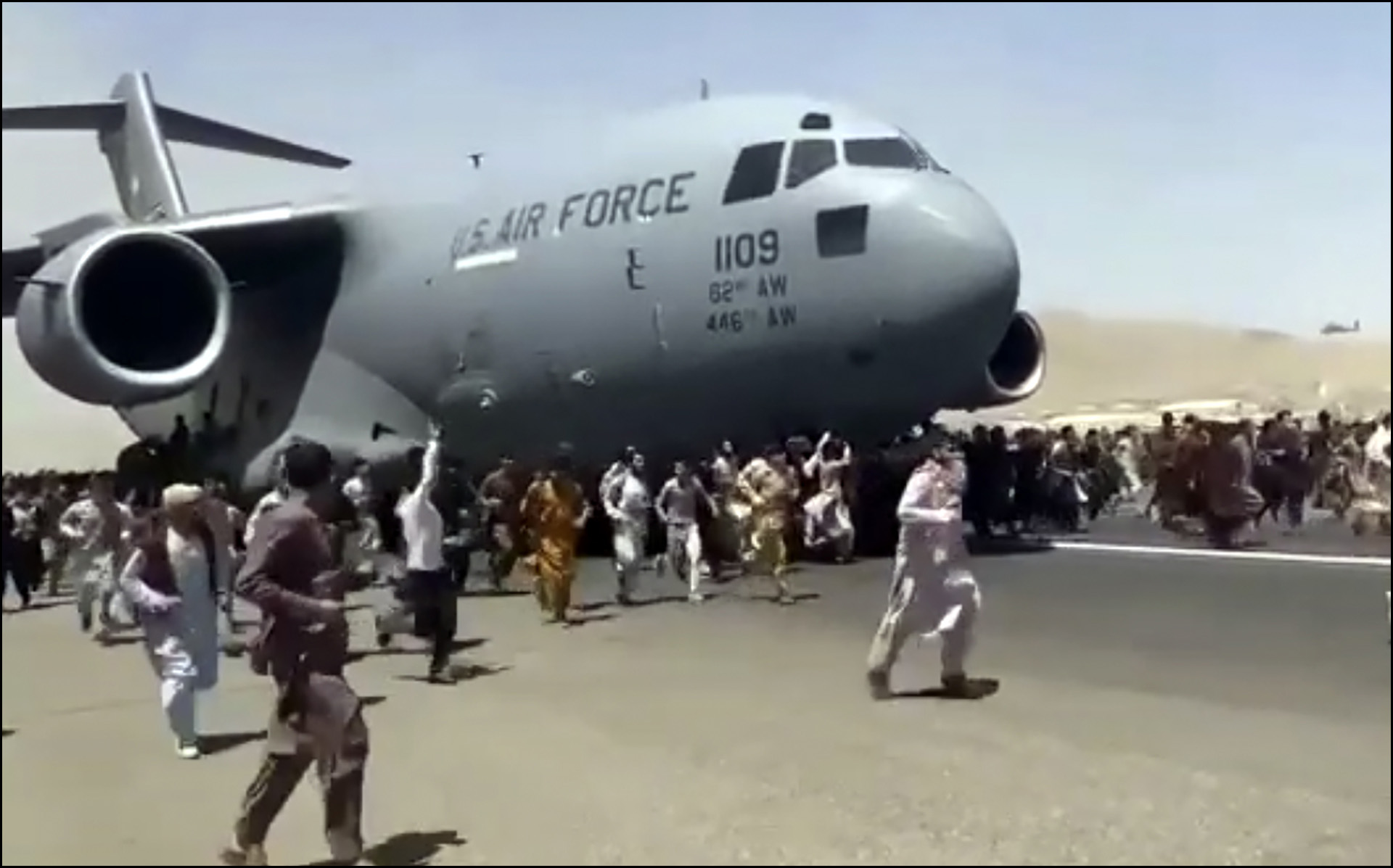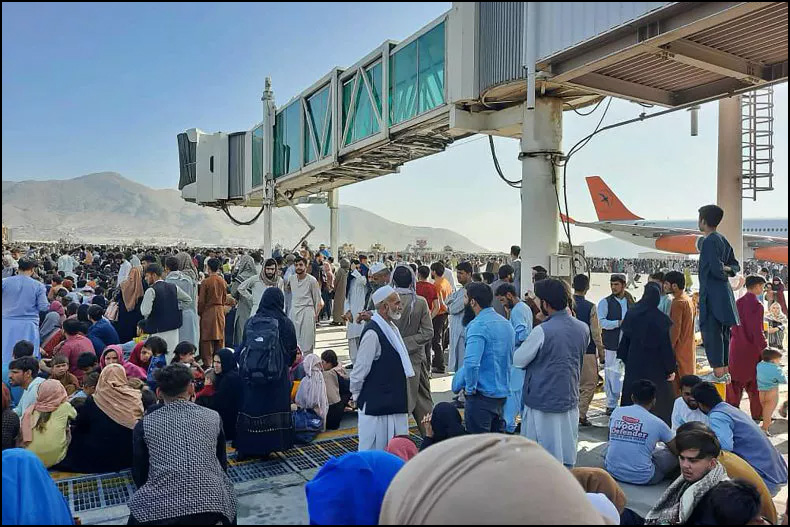Why did the Afghan army collapse so quickly? Here's the New York Times:
As positions collapsed, the complaint was almost always the same: There was no air support or they had run out of supplies and food.
But even before that, the systemic weaknesses of the Afghan security forces — which on paper numbered somewhere around 300,000 people, but in recent days have totaled around just one-sixth of that, according to U.S. officials — were apparent. These shortfalls can be traced to numerous issues that sprung from the West’s insistence on building a fully modern military with all the logistical and supply complexities one requires, and which has proved unsustainable without the United States and its NATO allies.
And here's the Times again:
Commanders [knew] that the afflictions of the Afghan forces had never been cured: the deep corruption, the failure by the government to pay many Afghan soldiers and police officers for months, the defections, the soldiers sent to the front without adequate food and water, let alone arms. In the past several days, the Afghan forces have steadily collapsed as they battled to defend ever shrinking territory, losing Mazar-i-Sharif, the country’s economic engine, to the Taliban on Saturday.
And the Wall Street Journal:
When U.S. forces were still operating here, the Afghan government sought to maximize its presence through the country’s far-flung countryside, maintaining more than 200 bases and outposts that could be resupplied only by air. Extending government operations to the most of Afghanistan’s more than 400 districts has long been the main pillar of America’s counterinsurgency strategy.
Mr. Ghani had ample warning of the American departure after the Trump administration signed the February 2020 agreement with the Taliban that called on all U.S. forces and contractors to leave by May 2021. Yet, the Afghan government failed to adjust its military footprint to match the new reality. Many officials didn’t believe in their hearts that the Americans would actually leave.
And let's not forget the Washington Post:
The near-collapse of the Afghan army in the space of just a few stunning weeks is prompting the military and Washington’s policymakers to reflect on their failures over the course of nearly two decades....“You look at the Afghan constitution that was created in Bonn [in 2001] and it was trying to create a Western democracy,” said Michèle Flournoy, one of the architects of President Barack Obama’s troop surge in Afghanistan in 2010. “In retrospect, the United States and its allies got it really wrong from the very beginning. The bar was set based on our democratic ideals, not on what was sustainable or workable in an Afghan context.”
....On trips to Afghanistan, she met frequently with young Afghans, including women’s groups, who shared America’s vision for the country....But those individuals were no match for the rot that had permeated the Afghan government. She and other U.S. officials understood that with all the U.S. money floating around in Afghanistan, there would be “petty corruption,” she said. What U.S. officials discovered in 2010, after the surge was already underway, was a corruption that ran far deeper than they had previously understood and that jeopardized their strategy, which depended on building the legitimacy of the Afghan government.
“We realized that this is not going to work,” Flournoy said. “We had made a big bet only to learn that our local partner was rotten.”
Let's round this all up:
- Hubristic nation building.
- Starry-eyed constitution writing.
- Wildly unrealistic military training.
- Vast corruption.
- Lack of food and weapons for Afghan soldiers.
- Bad negotiating from the Trump administration.
- Afghan leadership void.
I'm glad everyone is finally able to admit this now that the war is over, but it sure sounds like it's been common knowledge for at least a decade. This is why I think it's folly to suggest that things would have been any different if we'd waited another six months before withdrawing.
There's no question that the US policy class has a lot to answer for here, but the bulk of the blame has to be placed on the army. They were the ones on the ground. They were the ones who built an Afghan military that was completely unsuitable to the country. They're the ones who apparently never grasped the full extent of the corruption they were up against. They were the ones who advised four different US presidents that things were going well if they could just have a little more time and a few more troops.
The US military is hardly the only organization that hates to be the bearer of bad news. Nor are they the only organization that hates to admit they can't do the job they're being asked to do. But an unwillingness to do these things was one of the primary reasons we lost Vietnam, and our military leadership at the time swore it would never happen again.
But it did, just as soon as they found themselves in a similar situation. I remember years and years of blathering about counterinsurgency during the aughts, with army officers insisting that we could learn how to do it and skeptics pointing out that there were practically no examples of successful Western counterinsurgencies in the entire era since World War II. But after David Petraeus left the scene everyone got tired of this stuff and the nation's op-ed pages moved on to other things.
But guess what? The skeptics were right.








